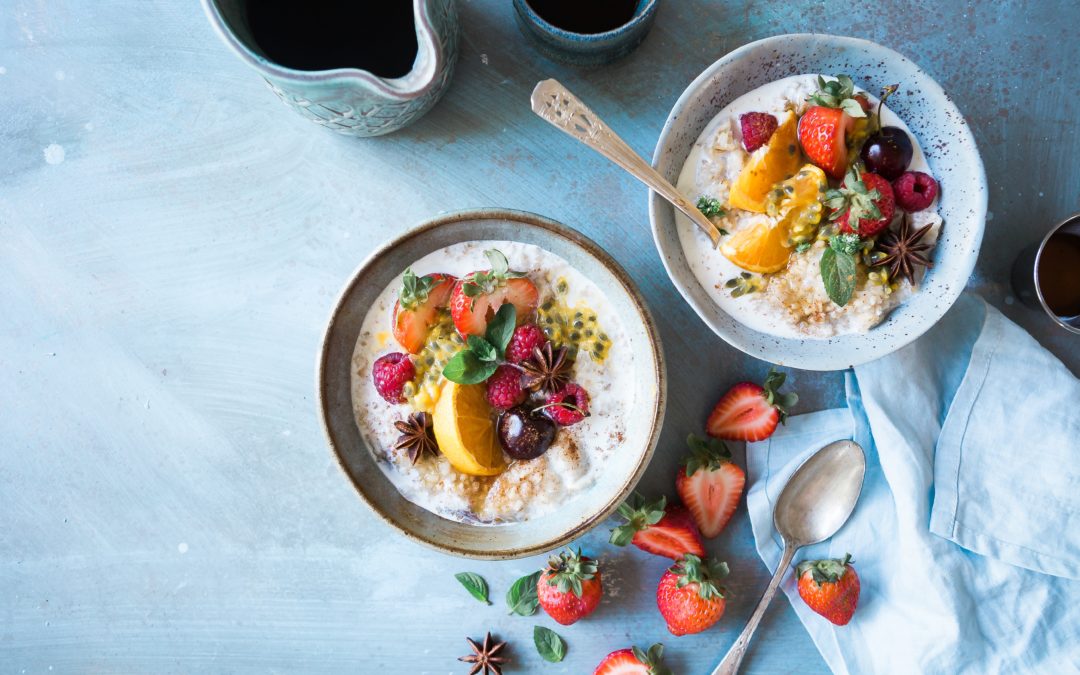Gluten-Free Plant-Based Proteins That Provide High-Quality Fuel and Essential Nutrients
Humans need about .8 grams of protein per pound of body weight. This is about 70 grams of protein for a 200-pound person. That’s not hard to do, considering the average American consumes between 70-120 grams of protein per day. But not all protein is created the same. In fact, there are significant differences in the quality, make-up, and attitude toward animal-based proteins and plant-based proteins. Animal-based proteins have their benefits and are often revered as ‘high-quality” protein, but gluten-free plant-based proteins also have amazing benefits and can be considered high-quality. Understanding how different sources of protein affect your body will help you make the most of your meals and enjoy lasting, substantial energy.
The Key Difference Between Animal-Based Protein and Plant-Based Protein
When we digest protein, our bodies break it down into amino acids. The amino acid profile for animal-based proteins is slightly different than for plant-based proteins.
Animal-based proteins such as red meat, poultry, fish, dairy and eggs are more similar to proteins found in our bodies and are wholly considered complete proteins, meaning they contain all the essential amino acids.
Animal-based proteins also contain more of some essential nutrients, including vitamin B12, zinc, vitamin D, DHA, Omega-3, and iron. However, animal-based proteins also contain more sulfur, which causes an imbalance to our pH and depletes our calcium levels.
Plant-based proteins happen to contain key nutrients that are less abundant in animal-based proteins. These include phytochemicals, magnesium, fiber, vitamin E, potassium, polyphenols, and flavonoids.
Another key difference between plant-based proteins and animal-based proteins: animal-based proteins contain pro-oxidants while plant-based proteins contain antioxidants.
While there is much to be excited about with plant-based proteins, they are not typically complete proteins on their own.
But did you know you don’t need to get all the amino acids in every meal? You just need to consume the recommended daily amount of each amino acid through all of your meals. You can also easily pair certain plant-based proteins together in your meals to create complete proteins without consuming animal-based proteins.
A good rule of thumb is to combine whole grains with legumes or both with nuts and seeds. This is the key to consuming adequate protein as a vegetarian, or as someone who is experimenting with more plant-based protein.
Why Gluten-Free Plant-Based Proteins?
Gluten-free plant-based proteins can be just as effective as animal-based proteins in terms of energy, which is good news for vegetarians who also happen to have gluten intolerance. Whether you’re a vegetarian or you’re just looking to incorporate more gluten-free plant-based protein into your diet, know which foods pack the most power.
Buckwheat
Buckwheat is actually not a wheat at all, it is related to Rhubarb and is commonly used to make Japanese soba noodles, pancakes, and porridge. Buckwheat is full of fiber, copper, phosphorous, manganese and magnesium.
Quinoa
Quinoa can replace rice in most situations for a more nutritional meal. Quinoa is easily the most recognizable ancient grain, and its versatility has certainly made it a home run for plant-based proteins. However, quinoa can be upsetting to the stomach if you have a sensitive digestive system, so take it slowly with quinoa at first if you’re new to it.
Chia Seeds
Chia seeds provide great energy and can easily be added to smoothies, juices, salads, and other recipes. With plenty of iron, calcium, zinc, and antioxidants, chia seeds are a perfect addition to your daily meals and snacks.
Beans and Rice
Beans and rice are a perfect pair when looking for a complete protein. They are easy, universally loved, and packed with other essential nutrients. Beans and rice can also act as a base for a variety of different recipes.
Sorghum
Sorghum is another versatile, low-sodium grain that can replace rice or quinoa in everyday meals. Sorghum is rich in vitamin B complex nutrients, protein, and complex carbohydrates. Sorghum is also rich in antioxidants, high in potassium and completely gluten-free, making this grain a perfect replacement for vegetarians with gluten intolerance.
Soy
Soy is one of the only plant-based proteins that is actually considered a complete protein. It is a versatile plant-based protein found in tofu, tempeh, and it’s usually the based of “vegan meats” like vegan bacon and tofurkey.
Teff
With more calcium than any other grain and the only ancient grain containing vitamin C, teff has an impressive nutritional profile. In fact, teff is also considered a complete protein. The poppyseed-size grain is also full of fiber vitamin B6, iron, and magnesium.
How will you incorporate these plant-based proteins into your diet? Comment below!

